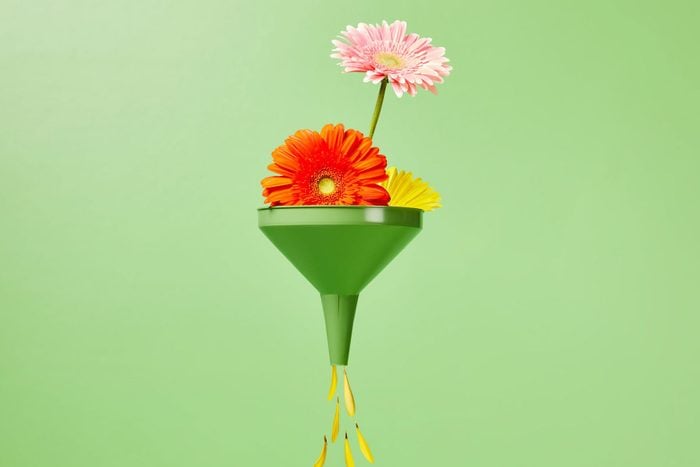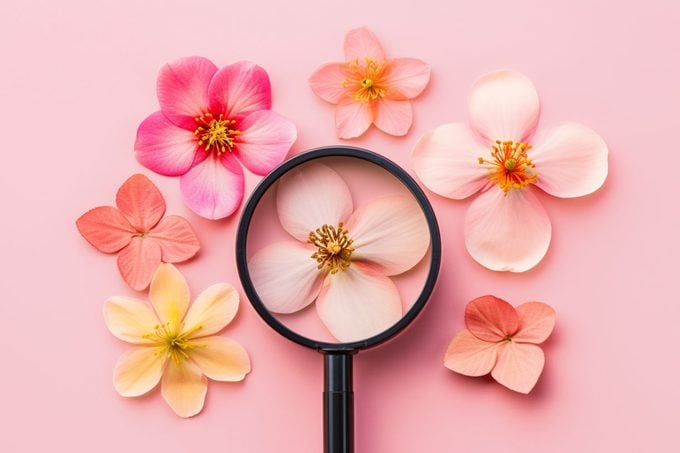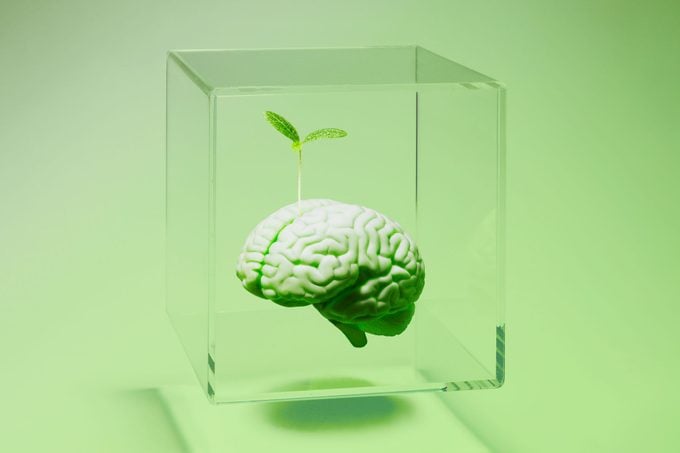How to Focus: 9 Science-Backed Ways to Block Out the Noise and Improve Your Concentration
Updated: Apr. 12, 2024

Feeling distracted? Learn how to regain your focus and maintain concentration with these science-backed tips and tricks.
In today’s world, with notifications and messages constantly popping up on our cell phones, smartwatches and desktops, it’s almost impossible not to lose focus throughout the day. And those are just tech distractions. Many of us also have to factor in chatty co-workers or, if you work from home, pets that need to be walked or a partner or kids who demand attention. And don’t forget all those random thoughts and worries crowding our brains. As a result, maintaining concentration may feel almost impossible, and you may find it more challenging to remember things you learn. That’s why learning how to focus is essential.
We spoke to Sasha Hamdani, MD, board-certified psychiatrist and author of Self-Care for People with ADHD, and combed through research to bring you the best advice on improving your concentration and focus—you might even learn how to become smarter in the process.
Get Reader’s Digest’s Read Up newsletter for knowledge, humor, cleaning, travel, tech and fun facts all week long.
Why is it so hard to focus?
A common culprit for distraction is—no surprise here—the abundance of stimulation you’re exposed to throughout the day, and more specifically overstimulation. By definition, overstimulation is simply when you’re receiving too much sensory input at one time. Constant connectivity and the frequent use of electronic devices allow for the outside environment to get in, even when we’re trying hard to focus to complete a task.
Other factors can lead to the loss of concentration as well, such as lack of sleep or even trying to finish too many things on your to-do list at once. Plus, according to experts, everyone is wired differently, so some individuals may naturally struggle more with paying attention than others. On top of that, brain function peaks in your early 20s and then slowly and gradually diminishes as the years go by, which makes it even harder to learn how to focus.
If you find yourself frequently distracted and losing concentration, try these science-backed ways to help you block out noise and regain your focus.
Science-backed tips on how to focus

1. Perform one task at a time
While multitasking might seem like a good skill to have, it might actually be hurting your concentration—and overall performance. According to research that compared multitaskers with those with a singular focus, heavier multitaskers were more susceptible to being distracted by noise. As a result, they also performed worse on a test of task-switching ability. So even if you think you’re killing two birds with one stone by multitasking, you may actually just be performing multiple tasks at a less-than-average level. Concentrate on one thing at a time to improve your focus.
2. Take a break
It might seem counterintuitive to take a break in order to get things done, but stepping away from what you’re working on for a short period of time can actually help you remember how to focus. When you concentrate on the same task or goal for an extended period of time, your mind can wander and your focus can shift. According to research in the journal Cognition, taking a small break from the current task at hand and deactivating your mind forces you to then reactivate as you get back to work, which may improve concentration.
3. Try the Pomodoro Technique
Not sure exactly how or when to take a break? Try the Pomodoro Technique. Here’s how it works: Choose a goal or task. Work on it for 25 minutes at a time with short five-minute breaks between the intervals. (Each work interval is called a Pomodoro.) After four Pomodoros (two hours), you then take a longer break for 15 to 30-minutes. The theory behind this time-management method, created by Francesco Cirillo, is that by setting a time-specific work period for a task or goal, you’re able to focus more easily and not be distracted. Plus, breaking a job into set increments of time can help you get started on a task you were putting off.
4. Reduce distractions
One of the not-so-secret secrets to learning how to focus is to cut down on outside distractions. That’s easier said than done, of course, when the temptation to check your social media feeds is as close as your smartphone. Start by utilizing your phone’s “do not disturb” feature to silence texts, news alerts and other notifications. If that’s not enough, try keeping your phone in a desk drawer or on the other side of the room so you don’t mindlessly reach for it to start scrolling.

5. Practice meditation
Scientific studies have consistently shown that mindfulness meditation can improve concentration and attention span. “Mindfulness practices involve focusing your attention on the present moment without judgment,” says Dr. Hamdani. “Regular meditation can help rewire the brain, making it better at sustaining attention and reducing mind-wandering.” Regular meditation has been shown to lead to improved memory and an enhanced attention span.
6. Sleep longer
As you may already know, sleep plays a crucial role in many bodily functions, including cognitive function, and more specifically, concentration and attention. “Research has shown that sleep deprivation can impair attention, alertness and the ability to concentrate,” says Dr. Hamdani. A study in Sleep Science found that even just one single night of sleep deprivation could lead to a significant decline in attention and cognitive ability. “It’s recommended that adults aim to try to get seven to nine hours of quality sleep per night,” she says.
7. Take a nap
If you didn’t get enough sleep last night and are feeling tired and irritable and finding it impossible to concentrate, give in to the fatigue instead of trying to fight it. According to a review from the journal Progress in Brain Research, naps can not only reduce sleepiness, but they may also improve cognitive performance.
8. Exercise daily
Engaging in regular physical activity has been linked to improved cognitive function, including concentration and attention. “Exercise increases blood flow to the brain, promotes the release of neurochemicals like dopamine and serotonin and stimulates the growth of new neurons,” says Dr. Hamdani.
9. Caffeinate
In case you needed another excuse to grab a cup of Joe in the morning, now you have one! According to an article published in the Journal of Alzheimer’s Disease, low doses of caffeine can play a role in improving reaction time and memory performance and also reduce anxiety. Just be sure not to overdo it. High doses of caffeine can have the exact opposite effect and increase anxiety, nervousness and jitters.
“In addition to these science-backed methods, it’s essential to maintain a balanced diet, stay hydrated and manage stress levels, as these factors can also impact concentration,” says Dr. Hamdani.
About the expert
- Sasha Hamdani, MD, is a board-certified psychiatrist based in Leawood, Kansas, and the author of Self-Care for People with ADHD. As a psychiatrist, she helps individuals with ADHD learn the tools to better optimize their lives.
Sources:
- Psychological and Cognitive Sciences: “Cognitive control in media multitaskers”
- Cognition: “Brief and rare mental ‘breaks’ keep you focused: Deactivation and reactivation of task goals preempt vigilance decrements”
- Psychological Science: “Mindfulness training improves working memory capacity and GRE performance while reducing mind wandering”
- Sleep Science: “The effect of one-night sleep deprivation on cognitive functions in healthy young adults”
- Progress in Brain Research: “The effects of napping on cognitive functioning”
- Journal of Alzheimer’s Disease: “Is caffeine a cognitive enhancer?”



